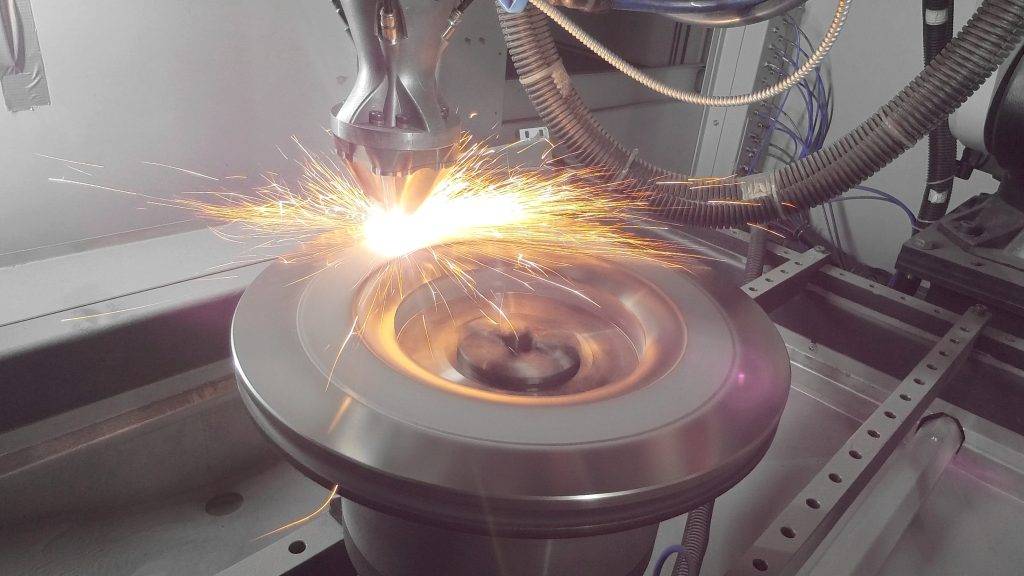In a significant stride towards sustainability in the automotive industry, Italian 3D printer OEM Prima Additive has teamed up with automation and robotics firm Comau to develop a groundbreaking high-speed brake disc coating system for automotive giant Stellantis.
This innovation leverages advanced technologies to enhance vehicle performance while addressing stringent environmental regulations.The Need for Sustainable Solutions in Automotive Manufacturing With increasing environmental concerns, the automotive industry is under pressure to reduce emissions and improve sustainability practices.
Brake discs, which contribute substantially to particulate emissions, have become a focal point for manufacturers seeking to meet regulatory targets. According to Prima Additive, approximately 21% of particulate emissions from combustion vehicles stem from brake discs. When brakes are applied, material erosion releases fine particles (less than 10μm) into the atmosphere, contributing to pollution.
The European Union’s Euro 7 standard, set to enforce stricter regulations, mandates a 27% reduction in brake disc emissions by 2026 and an overall reduction of 13% in automotive particulate emissions. As automotive manufacturers adapt to these regulations, innovative solutions that enhance performance and reduce environmental impact are more critical than ever. The Rapid Coating Process: A Game-Changer in Brake Disc Production. The newly developed Rapid Coating Process (RCP) by Prima Additive and Comau integrates several cutting-edge technologies, including advanced laser systems, robotic arms, and directed energy deposition (DED) 3D printing technology.
This automated system quickly applies a thin, resilient metal layer to raw metal brake discs, significantly improving their wear resistance.Prima Additive’s CEO, Paolo Calefati, hailed the new coating systems as “the most profitable and sustainable cases of laser additive manufacturing/laser cladding technology applied in mass production for automotive.” This statement underscores the dual advantage of enhanced performance and sustainability that the Rapid Coating Process brings to the automotive industry.Meeting Regulatory Standards with Innovative Technology.
One of the standout features of the RCP is its ability to reduce brake disc degradation-related emissions by up to 80%. This significant reduction aligns perfectly with the upcoming Euro 7 standards, positioning Stellantis as a frontrunner in adopting technologies that comply with stringent environmental regulations.The first installation of the DED-based coating cells was showcased at Stellantis’ Factory Booster Day in Turin, Italy, on September 18, marking a crucial step in automotive manufacturing innovation.The Technology Behind the Coating Process
The Rapid Coating Process cell integrates Comau’s robotic arms with Siemens SINUMERIK Run MyRobot software, allowing for direct control of the robotic arms without needing external controllers. This integration facilitates precise and efficient operation, enhancing the overall productivity of the coating process.According to Prima Additive, the RCP can produce high-quality, repeatable two-layer brake disc coatings using 430L steel and TiC (titanium carbide). The DED-powered process not only accelerates coating times but also optimizes flexibility.
The system’s adjustable grippers can handle various disc sizes, accommodating both cars and trucks and adapting to evolving application requirements.The RCP achieves its speed by only partially melting the base metal while simultaneously melting the powder as it passes through the laser beam. This innovative technique ensures a robust coating without compromising the integrity of the brake disc.Market Potential and Future Deployments
As the automotive industry grapples with increasing environmental regulations, the demand for turnkey solutions that effectively reduce particulate emissions is on the rise. Comau CEO Pietro Gorlier noted that this robotized solution represents a great example of innovation spearheaded by two Italian companies working to address crucial sustainability targets. The Rapid Coating system is slated for deployment at Stellant is’ plant in Septfonds, France, by the end of the year. This milestone positions Stellant is among the first automotive manufacturers to implement a fully automated production line for hard-coating brake discs in compliance with the Euro 7 standards.
A Sustainable Future for Automotive Manufacturing The collaboration between Prima Additive and Comau marks a significant advancement in sustainable automotive manufacturing. By harnessing the power of 3D printing and advanced robotics, the Rapid Coating Process promises to enhance brake disc performance while drastically reducing emissions. As the automotive industry moves towards greater sustainability, innovations like these are essential in paving the way for a cleaner, greener future. With ongoing developments and the increasing need for eco-friendly practices, the automotive sector is poised to undergo a transformative change, one that prioritizes both performance and environmental responsibility.
Original Source


